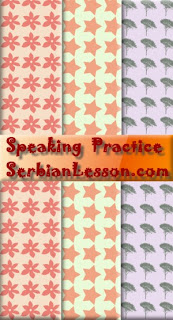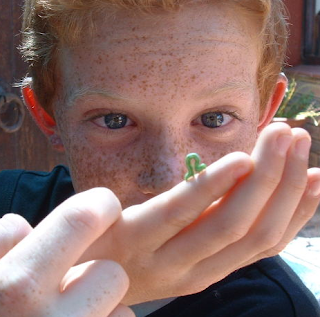In one of my more advanced Serbian lessons there came up a few expressions which I wanted to share with you today. I will copy-paste a part of the text about Jeremija, with whom you can learn Serbian from the very start. I'll list the tasks below this short excerpt:
Jeremija je bio veoma srećan tog jutra, jer je bio potpuno siguran da će dobiti povišicu na poslu. Njegov šef je u nekoliko navrata natuknuo Jeremiji da će od sledećeg meseca omastiti brk, kao i da je to potpuno zaslužio. Jeremija se pravio lud i uspešno se uzdržavao da ne vuče šefa za rukav i postavlja dodatna pitanja. Bio je svestan da sve što bude dobio jeste rezultat njegovog sopstvenog rada i da nije jednostavno palo s neba. Posebno mu je bilo milo što ovaj put nije morao da se kiti tuđim perjem. Njegova zasluga je bila očigledna. Kada je tog jutra stigao na posao i otvorio svoju kancelariju, imao je šta da vidi. Na stolu je stajao potpuno nov kompjuter i pored njega još noviji mobilni, a šef je sav sijao od sreće! "Šta sam ti rekao? Borio sam za tebe kao vučica... i izborio sam se! Najnoviji model? Hm? Šta kažeš?" Jeremija nije morao da se pretvara - na njegovom licu se videlo da su mu sve lađe potonule... Bio je 100% siguran da će dobiti veću platu, a sada mu je postalo jasno da je ostao kratkih rukava! Šta će mu sada Spomenka reći?
Right, now there are three tasks for you:
- The easiest task: Can you find the synonyms for these words in the text:
- drago
- aludirao
- apsolutno
- pravi
- narednog
- jako
- blesav
- totalno
- puta
- shvatio
- sasvim
- samo
2. The more difficult task: which phrases and idioms mean:
- down in the dumps/ in the doldrums
- fight like a wolf
- to be absolutely certain about something
- keep asking for something
- get a raise
- take an advantage of something
- to deck oneself in borrowed finery
- to get the worst of a bargain/ to come away empty-handed
3. The most difficult task: what will Spomenka say to him when he arrives back home? Try to come up with a suitable idiom or expression. Let me help you with a few ideas, and you try to guess which ones are the most appropriate:
- ko drugome jamu kopa sam u nju upada
- svako nosi svoj krst
- nema ti ravna
- prvo skoči pa reci hop
- nije zlato sve što sija
- ko rano rani dve sreće grabi
- doterao je cara do duvara
- poklonu se u zube ne gleda

.png)






















